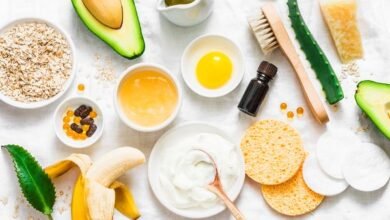Waterless cosmetics: a more sustainable and economical option

Waterless cosmetics: a more sustainable and economical option
Water is essential to life on Earth, but like all natural resources, it is finite. In the midst of the challenge of rethinking water consumption, cosmetics without water , products that do not contain water in their composition and which are produced more economically. A Friendly Direction for Planet Earth – Plus Your Pocket Book!
Do cosmetics without water moisturize less? the answer is no ! On the contrary: water-free cosmetics contain more natural oils in their composition, ensuring nutrition and therefore the longest moisturizing time .
Pharmacist Jack Rosemary explains the process: “ The final moisturizing result of a waterless cosmetics is more effective than an option that uses water. Natural compounds such as coconut oil prolong the hydration of hair and skin as they provide a surface layer of protection.”
Jack Alecrim points out that moisturizing hair does not depend solely on cosmetics: “This is why it is necessary to take plenty of water: because hydration must occur from the inside out, so cosmetics will form a protective layer that prolongs the hydration of your skin.”
In addition, there are other components that can replace the role of water in formulations and at the same time provide benefits to those who use it.
“Some are extracts from honey that soothe the skin; jojoba oil, camellia seed oil, and apricot kernel oil, for example, that help maintain elasticity while providing powerful antioxidants,” highlights Daniela Lopez, esthetician and cosmetologist.
Another benefit of the predominance of natural compounds in anhydrous cosmetics (those that do not contain water in their formula) is that they are more natural and less likely to generate allergic reactions. Therefore, this type of product is highly recommended for sensitive skin.
However, the risks associated with preservatives found in cosmetics, as well as industrial foods, are numerous: research indicates that these compounds are linked to the emergence of diseases as well as allergic reactions.
“If we could only apply what we can eat to our skin, that would be the ideal scenario, because the skin is a very permeable barrier for protection. What we apply to the skin, easily migrates into the bloodstream and into our bodies. The less we introduce ourselves to preservatives,” Jacques Alcreme points out. We have less risk.
Sustainability
According to beauty expert Daniela Lopez, water-free products are an expanding trend due to environmental issues as well as changes in consumer profiles.
Environmental disasters caused by pollution increase consumer concern about the composition, origin and ultimate impact of products on the planet.
“The trend is that in the coming years the cosmetic market will have more and more products that do not use water. The world is in transition and with the water crisis, mankind has already realized that water conservation is increasingly essential. A great challenge for the cosmetic industry. Thus, it will be It’s more and more common to see these products around.”
In addition to not using water in lotion, most anhydrous cosmetics do not use plastic for storage. When these products require packaging, they are usually smaller and made from materials that help the environment.
Jack Alecrim explains the environmental potential of this type of product: “These cosmetics also play a big role when you think about sustainability. Many of them do not use plastic in their packaging and when they do, they are made from biodegradable plastic. .”
Biodegradable products are one solution to help preserve the environment. According to a study by UNICAMP, while common plastics take 250-400 years to degrade, biodegradable plastics take 180 days – that’s about six months.
The cosmetic industry among these consumes the most water in the world according to Jacques Alcrem, who emphasized the importance of preserving natural resources: “We must remember that water is our golden wealth in the future. With less water, we pollute less, we use fewer preservatives, We produce less waste.”
Another sustainable point of water-free cosmetics is that they have greater durability that highlights Daniela Lopez: “These products are safer for long-term consumption and last as long on shelves as at home.”
The expert claims that this product avoids wastage : “Often, for example, we put in more product than is necessary to use. If a tape version was used, this wouldn’t happen,” remembers Daniela Lopez.
Fear of the shampoo bottle breaking inside the bag? Not with this product! Waterless cosmetics can be moved easily and occupies a smaller volume . They are perfect for storing in your bag while traveling .
Cosmetic care without water
Daniela Lopez gives tips for ensuring the durability of your water-free product: “Ideally, it should be kept out of the water, in this way it will be possible to prevent it from losing strength and stability.”



